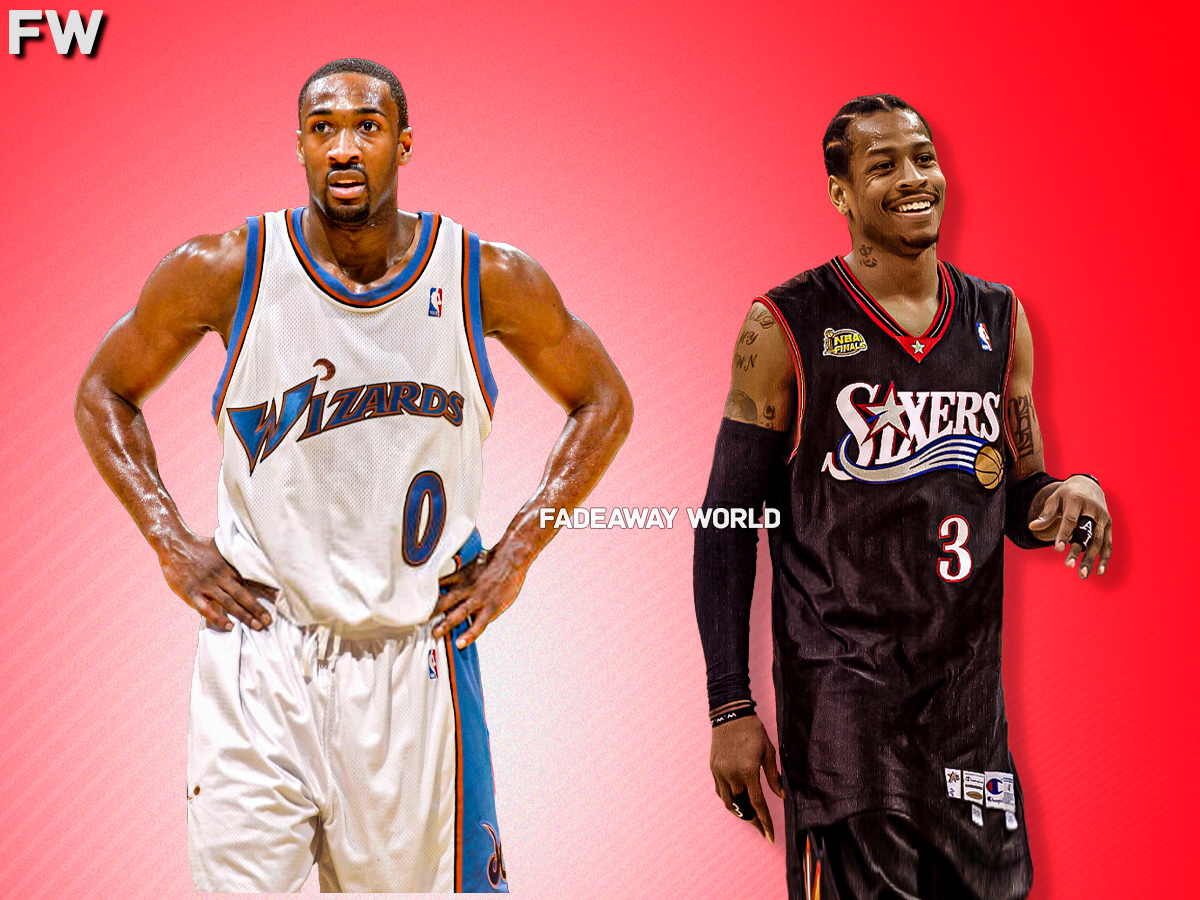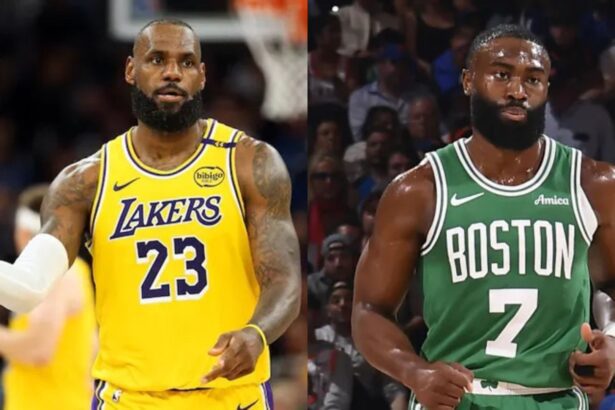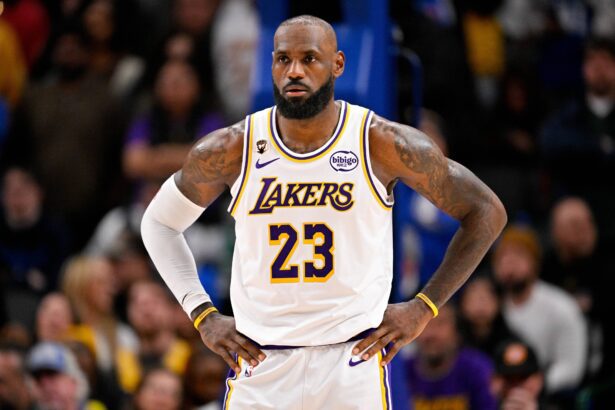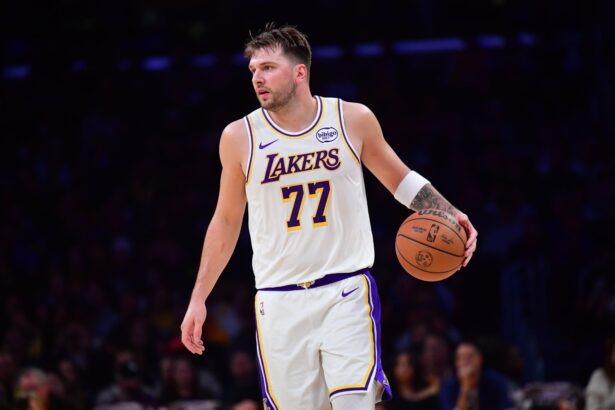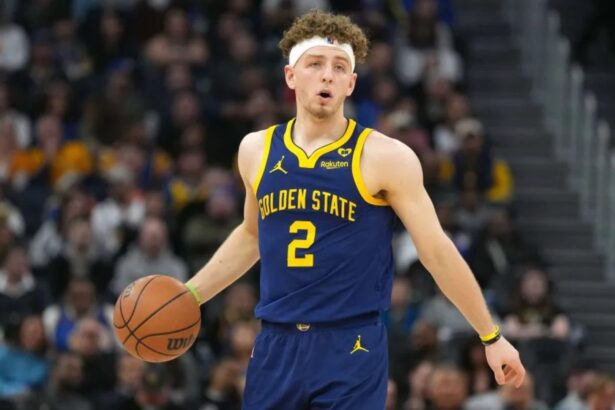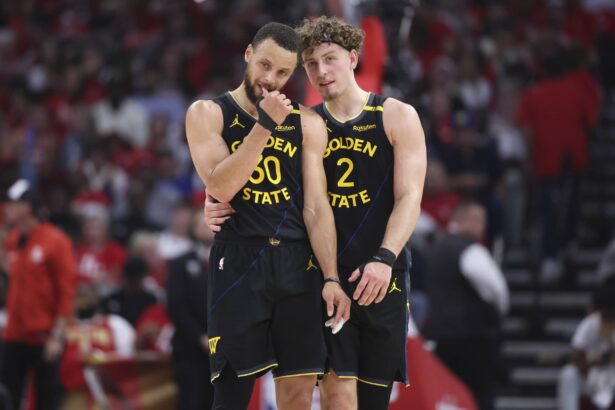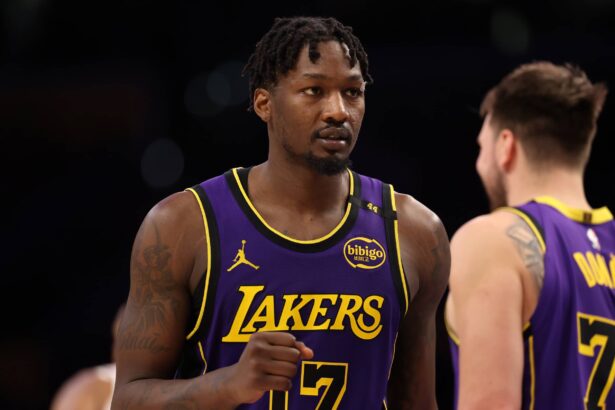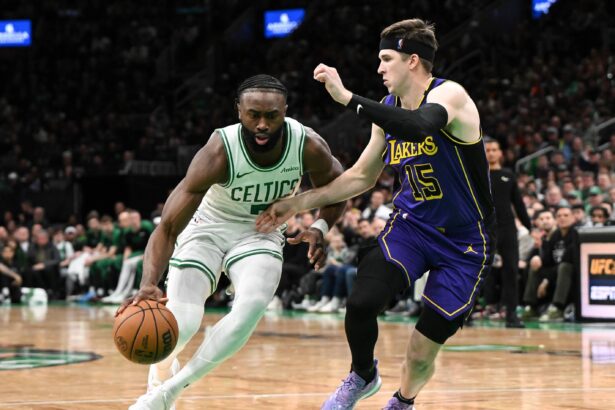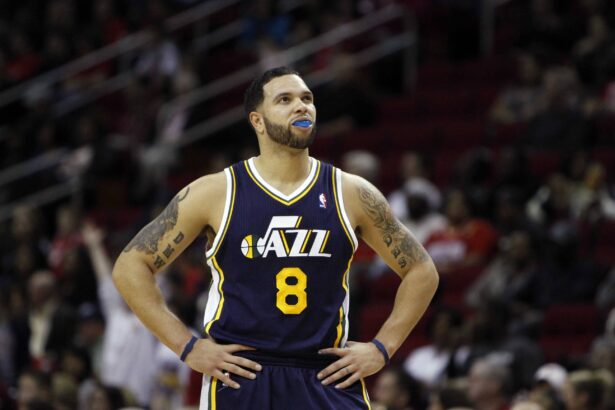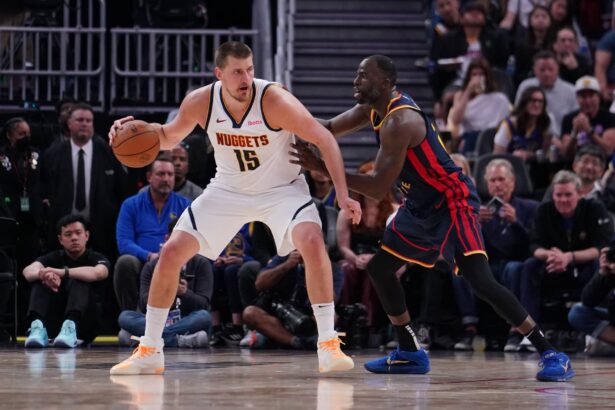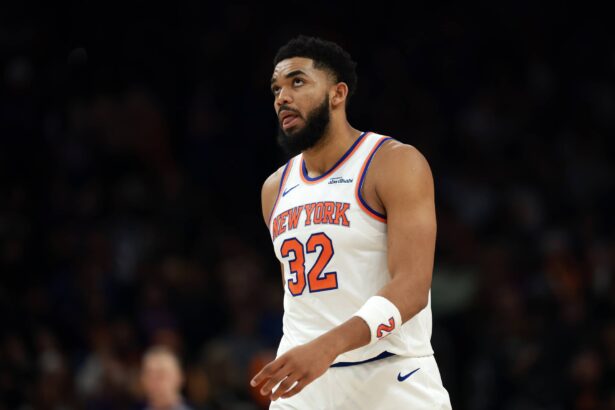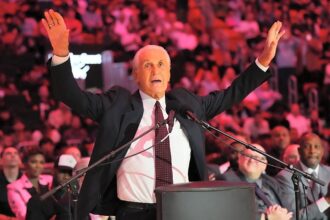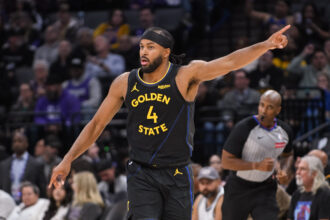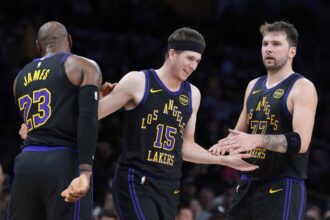Gilbert Arenas made a bold statement on his show “Gil’s Arena,” claiming that he would have averaged more points than Allen Iverson if he had played on the 2001 Philadelphia 76ers. Arenas, known for his confident and often provocative takes, argued that given the circumstances of Iverson’s 2000-01 MVP season, he could have surpassed Iverson’s scoring output.
“I think I would averaged more than Chuck if I was on that team. I’d average 29 and I had teammates that averaged 20 and 19 on it.”
Gilbert Arenas‘ best statistical season came in 2005-06 with the Washington Wizards, where he averaged 29.3 points, 6.1 assists, 3.5 rebounds, and 2.0 steals per game.
During that season, he shot 44.7% from the field and 36.9% from three-point range, while attempting 20.9 shots per game, including 6.8 three-point attempts and 10.0 free throw attempts. Arenas also had teammates like Caron Butler and Antawn Jamison, who averaged over 20 points and 17 points per game, respectively, giving him support offensively.
On the other hand, Allen Iverson’s 2000-01 season is widely regarded as one of the greatest individual seasons in NBA history. Iverson led the Philadelphia 76ers to a 56-26 record and was named the league’s MVP. He averaged 31.1 points, 3.8 rebounds, 4.6 assists, and 2.5 steals per game while shooting 42% from the field and 32% from three-point range. Iverson’s usage rate was astronomical, as he took 25.5 shots per game, including 4.3 three-point attempts and 10.1 free-throw attempts.
The key difference between Iverson’s Sixers and Arenas’ Wizards was the level of offensive help Iverson had around him. The 2000-01 Sixers were a team built around Iverson’s scoring, with defensive role players and gritty veterans making up the rest of the roster.
Aside from Iverson, only three other players averaged double-digit points, with the second-highest scorer, Theo Ratliff, managing just 12.4 points per game. This forced Iverson to carry a significant offensive load, often creating his own shots in isolation and dealing with heavy defensive pressure.
Arenas, on the other hand, had more balanced offensive support with players like Butler and Jamison during his peak years in Washington. He had more freedom to play his game without needing to do everything on offense. His teammates’ ability to create their own shots gave Arenas more space to operate and contributed to his impressive numbers.
Despite this, Arenas did not claim that the Sixers would have necessarily made the NBA Finals or won a championship had he been in Iverson’s place. His assertion was purely about scoring, as he suggested that his ability to get buckets in various ways would have allowed him to average more than Iverson did on that team.
However, it’s worth considering the different styles and contexts in which the two players thrived. Iverson’s 2001 season was defined not just by his scoring but by his resilience, leadership, and ability to carry a team with limited offensive firepower. He faced constant double-teams and had to break down elite defenses with little support. Arenas, while a phenomenal scorer in his own right, played in a different era with different team dynamics.
While Arenas’ confidence is undeniable, the argument that he would have averaged more points than Iverson on the 2001 Sixers is highly speculative. Iverson’s MVP season is legendary for good reason, and his ability to lead a defensively oriented team to the NBA Finals remains one of the great individual accomplishments in league history. Arenas may have put up big numbers, but replicating Iverson’s impact on that Sixers team would have been a tall task.
Thank you for being a valued reader of Fadeaway World. If you liked this article, please consider following us on Google News. We really appreciate your support.

